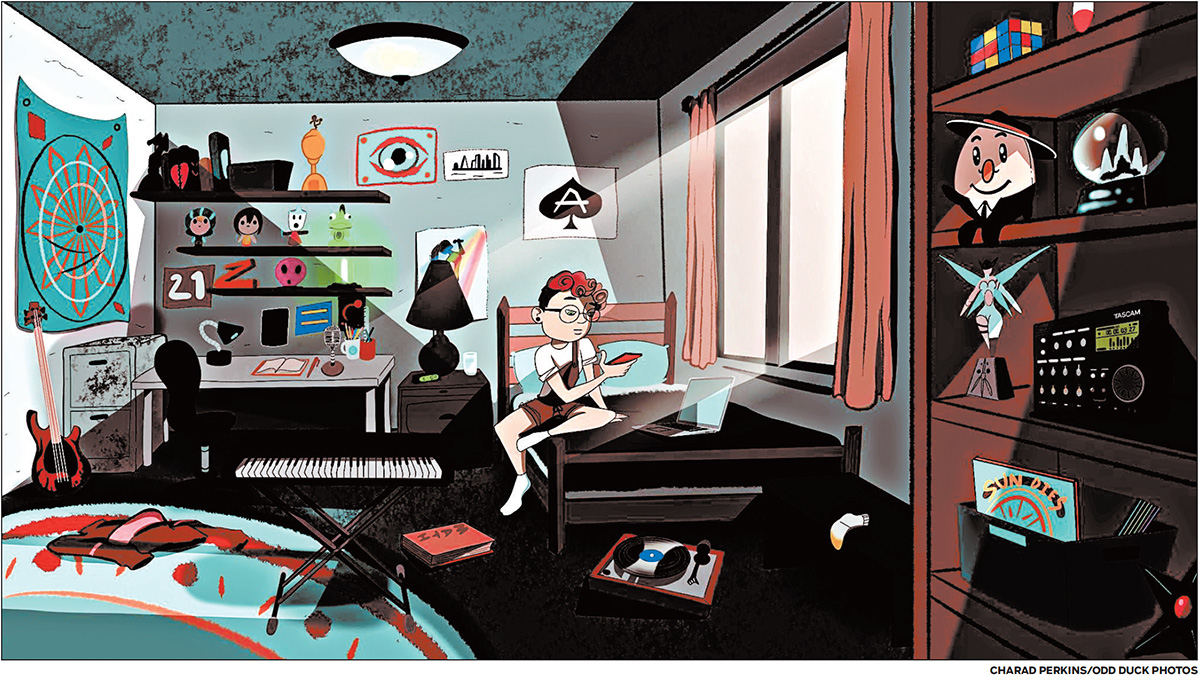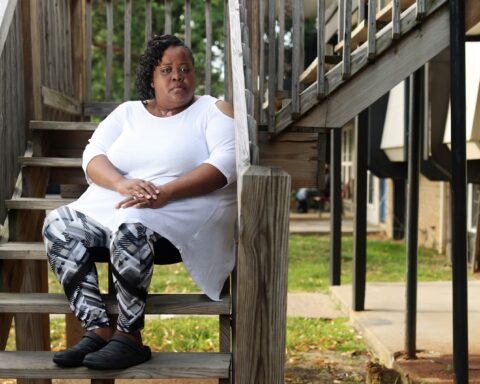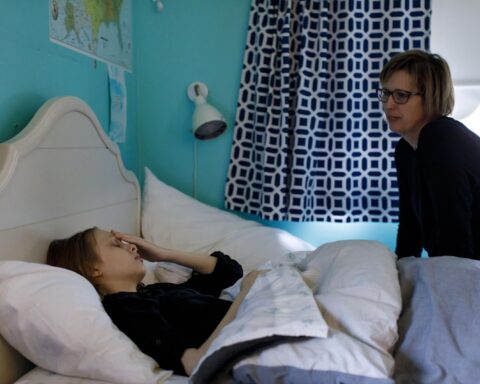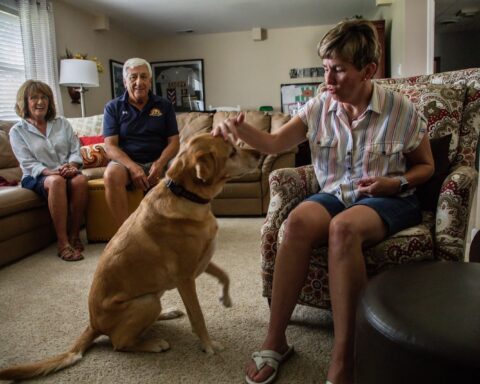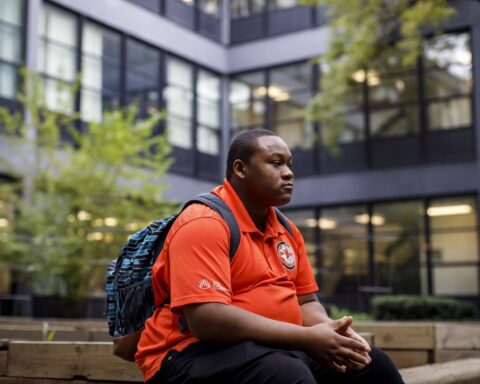What if you could boost your child’s immunity to depression in a comic book format?
What if your teen could choose her own adventure from the pages and subsequently learn to manage relationships and build resilience through cognitive-behavioral techniques?
That’s what University of Illinois at Chicago researchers are creating with Catch-It, an interactive online comic book intended to help teens ages 13-18 through a range of coping strategies. Created with evidence-based clinical research into depression prevention, Catch-It is a technology-based behavioral vaccine that intercedes before a depressive episode escalates.
“Those that are at risk… this tries to find people before they develop mental illness, particularly children, and actually prevent that mental illness,” said Dr. Benjamin Van Voorhees, department head of pediatrics at UIC’s College of Medicine and Catch-It’s principal investigator. “We do that for many other diseases, like mammograms, screening for cervical cancer—preventing onset before it occurs.”
The project is a result of several studies in rural, urban, and suburban landscapes that began in 2002, according to Van Voorhees, but this latest iteration adds a comic book slant. Narrated through an audio component, Catch-It is a narrative game in which the reader influences the outcome by choosing what action the chosen comic book character will take.
Characters are placed in scenarios that are considered common to adolescents dealing with depression, and stories were scripted around those situations. The interactive pieces offer users the opportunity to apply lessons learned and to affect the outcome of the story. The scenarios are presented in 14 modules that take about 15-30 minutes to get through, with questions and responses. The curriculum can be accessed via computer or smartphone, making it way more playful compared with a workbook vibe, said Josh Gryniewicz, narrative strategist on the project.
“There is this one module where a boy said hi to a girl he knew in school, but she didn’t say hi back to him,” said Aliza Gussin, 17, of Glenbrook North High School. “The module was about not assuming the worst in that situation—not being like: ‘Oh, she didn’t say hi to me. She must hate me. We’re not friends anymore.’ I know things like that really do happen in high school. I know it sounds kind of ridiculous, but it does really happen.”
Gussin, who is part of the teen advisory board for Catch-It, says the curriculum, which has components for teens and another for parents, covers a broad spectrum of issues teens might face in their day-to-day life, including having dark thoughts while hanging out in your room. Catch-It’s approach on positive thinking is simple but effective, she added.
“A lot of what I see in high school is that kids have insane amounts of stress and a lot of anxiety about everything. So, something as simple as positive thinking around the stress of daily life, it seems almost too hard to do. But positive thinking is a really easy way to make a change in how you feel and for depression.”

Participants in the program were screened for depression in clinics at the University of Illinois College of Medicine at Rockford, Advocate Aurora Health, Katherine Shaw Bethea Hospital in Dixon, Illinois, the University of Louisville, and the Wellesley Centers for Women in Massachusetts. Data from the Path 2 Purpose study helped create the Catch-It program, which is funded by Patient-Centered Outcomes Research Institute. Tracy Gladstone from the Wellesley Centers for Women is a co-principal investigator on the study.
“That’s the good thing about it,” said Melishia Bansa, Catch-It’s director of health equity and community engagement. “As you see the characters go through it, you can use that as an example to decide how you’re going to cope with your own situation. If you don’t feel comfortable talking with your peer or family member, you can see some ideas of how to deal with it.”
According to the National Institutes of Health, an estimated 3.2 million U.S. adolescents ages 12 to 17 have had at least one major depressive episode. This number represented 13.3% of the U.S. population in that age group. The prevalence of a major depressive episode was higher among adolescent females (20.0%) compared with males (6.8%).
Van Voorhees said the medical community struggles to implement effective prevention programs, but Catch-It is just that, a prevention model.
“If they wait until they’re sick enough or depressed enough to want treatment, they are really hard to treat,” he said. “But if you start when they are at the incipient stages of illness, we can interrupt that process, draw them into the model, and we can avert that (depressive) episode.”
Every time teens log in, the system tracks their mood on a five-point scale, so over time patterns emerge. Parents, who have their own component separate from their child’s, go through modules that give them information about depression so they can find out where the depressive symptoms could be coming from, said Rebecca Feinstein, a research assistant professor and project director of Path 2 Purpose.
“What happens generally is a kid who is depressed or has depressive symptoms either gets told to ‘watch and wait,’ or maybe they get a referral to behavioral health or to a therapist, which can take up to a year, depending on your access. But this is something to sort of fill in that gap of this in-between time,” Feinstein said. “We’re really trying to add to the plethora of ways that people can cope.”
Van Voorhees agrees. “We want to give people a sense of agency and resources that are culturally accessible and accessible through ordinary health care encounters that can allow them to redirect their lives,” he said. “It’s just flipping the paradigm. It’s a fundamentally more optimistic, hopeful cultural framing around mental health.”
For more information about the ongoing study, contact: 1-877-286-PATH (7284).
